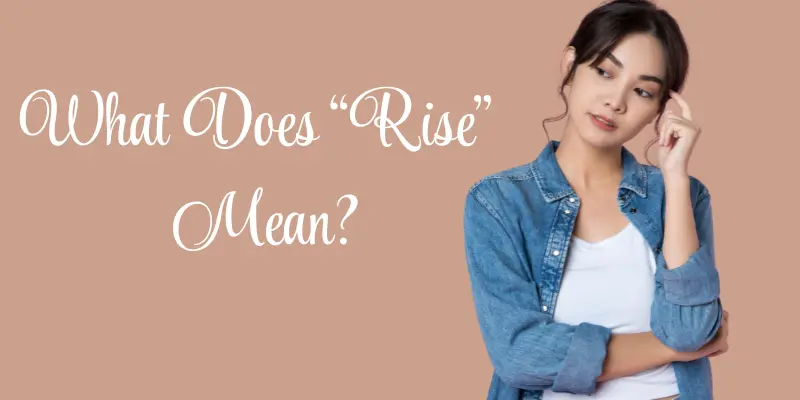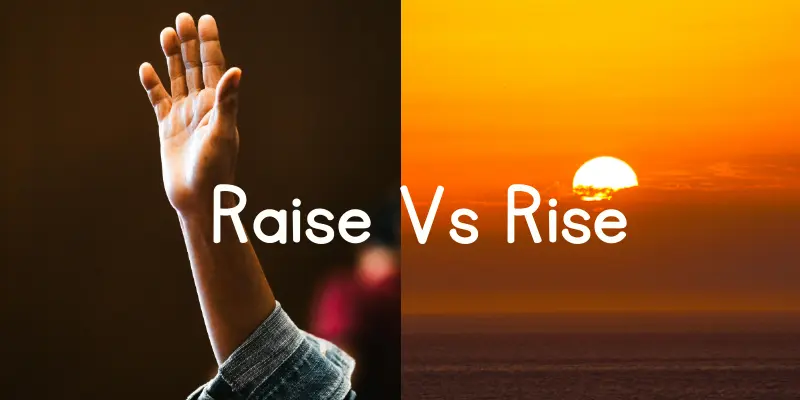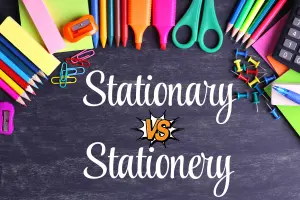Rise vs Raise – How to Use Each Correctly
Published: 6 Dec 2024
Hey everyone!
Did you know that ‘rise’ and ‘raise’ are among the most commonly confused verbs in the English language?
It’s frustrating, right?
These two words rise vs raise seem so similar, yet they are used very differently. One minute, you’re confident you’ve got it, and the next, you’re unsure if you’re using the right word.
But here’s the thing: mastering these words can make your speech and writing clearer and more powerful.
In this post, we’ll break down the key differences between these two tricky verbs and show you how to use them with confidence. Ready to clear up the confusion?
Let’s dive in!
What Does “Raise” Mean?

“Raise” is a verb that refers to the act of moving something or someone upward, typically with an external force. It is often used when an action is performed on an object, like raising your hand or raising a flag.
Think of “raise” like a parent lifting their child up onto a swing. The parent is actively helping the child go higher.
Similarly, “raise” means to lift or elevate something with effort or external action.
What does “Rise” Mean?

“Rise” is an intransitive verb, meaning it doesn’t need a direct object. It refers to something going up or increasing naturally, like the tide rising or a person rising from bed. It’s used when something moves upwards by itself or in a general sense.
Think of a rise like the sun moving up into the sky each morning. It happens naturally, without anyone having to help it.
Similarly, “rise” means to go upward or increase on its own, without external help or action.
Raise Or Rise Difference

The key difference between rise vs raise lies in the action. Raise is a transitive verb, meaning it requires a direct object (like raising a flag or raising your hand).
Examples of “raise”:
- He raised his voice in the meeting.
- They raised the bar to a new level.
- She will raise her hand to ask a question.
- I need to raise the curtain.
- Can you raise the volume, please?
Rise, on the other hand, is an intransitive verb and refers to something moving upward on its own, like the sun rising or water levels rising.
Examples of “rise”:
- The sun rises in the east.
- Prices may rise next month.
- The bread will rise in the oven.
- The birds rise into the sky.
- The water levels rise during the storm.
How Do You Use Rise and Raise
If you’re still unsure about when to use rise vs raise, we’ve got a clear and simple breakdown to help you get it right every time.
1. Identify the Action:
- If you’re causing something to go up, use raise. It involves an active effort on your part to lift or increase something.
Example: “I raise the bar higher.” (You are doing the action of lifting the bar.)
- If something is moving up or increasing on its own, use rise. It’s a natural or automatic upward movement.
Example: “The sun rises at 6:00 AM.” (The sun rises by itself.)
2. Determine if There’s an Object:
- If there is a direct object involved, you must use raise. The object is something you are acting upon.
Example: “She raised her voice in excitement.” (You are raising her voice—an object.)
- If there is no object involved, use rise. The subject of the sentence does the action without affecting something else directly.
Example: “The tide rises every day.” (The tide moves up by itself—no object is being acted upon.)
3. Test the Sentence:
- Does the action require an object?
- If yes, then raise is the right choice.
Example: “I raised my glass in a toast.” (I’m actively lifting the glass.)
- If yes, then raise is the right choice.
- If there’s no object involved, use rise.
Example: “The temperature rises during the day.” (The temperature increases naturally.)
Troubleshooting Common Issues:
- Mistake 1: Using rise when you need raise (e.g., “I rise my hand”).
- Fix: Remember, raise requires a direct object, like hand.
Correct sentence: “I raise my hand.” (You’re actively lifting your hand.)
- Fix: Remember, raise requires a direct object, like hand.
- Mistake 2: Using raise when the movement happens on its own (e.g., “The sun raises in the morning”).
- Fix: The correct sentence is “The sun rises in the morning” because it happens naturally, without any effort.
Correct sentence: “The sun rises in the east every day.” (The sun naturally rises.)
- Fix: The correct sentence is “The sun rises in the morning” because it happens naturally, without any effort.
Conclusion:
So guys, in this article, we’ve covered rise vs raise in detail. I hope this clears up any confusion and helps you feel more confident in using these verbs correctly.
My personal recommendation is to practice using them in sentences and pay close attention to whether there’s an object involved.
With a little bit of effort, you’ll soon have these words down! Remember, mastering small details like this can significantly improve your writing and speaking skills.
So go ahead, raise your knowledge, and rise to the challenge! If you found this helpful, don’t hesitate to explore more grammar tips and share this post with your friends!
Helpful Tips and Fun Facts About “Rise vs Raise”
- Raise comes from Old French; rise from Old English.
- Raise requires an object; rise does not.
- You raise a flag, but the sun rises.
- Raise can be used metaphorically, like raising awareness.
- You raise your voice, but you rise to the occasion.
- In business, you raise funds, but markets rise.
- “Rise and shine” is a motivational phrase.
- Raise your hand, but let the tide rise naturally.
- Pay raise is used in American English, and pay rise in British English.
- In literature, rising action builds up naturally toward the climax.
FAQs
What’s the difference between pay raise vs pay rise?
“Pay raise” is commonly used in American English, while “pay rise” is the British English version. Both phrases mean an increase in salary or wages, but the terminology differs based on regional language. There is no difference in meaning.
Is there a difference between raise up vs rise up?
“Raise up” means to lift or elevate something intentionally, like raising up a flag or lifting an object. “Rise up” refers to something happening on its own, like people rising up in protest or the sun rising in the sky. “Rise” implies natural movement, while “raise” is an action you do to something.
What is self-raising vs self-rising flour?
“Self-raising” flour is the term used in British English, while “self-rising” flour is the American version. Both types of flour already contain leavening agents, which help them rise when used in baking. The difference is purely in regional spelling, not in function.
How do you raise or rise a question?
You “raise a question” when you bring up a topic or inquiry in a discussion. The phrase “rise a question” is incorrect, as “raise” requires a direct object like the question you’re bringing up. Always use “raise” when referring to introducing a question.
What is the difference between raising day or rising day?
“Raising Day” refers to a special event or occasion where something is elevated or brought to attention, such as a flag-raising ceremony or a fundraising event. On the other hand, “Rising Day” is not a commonly used term in English. If you’re referring to the day when something rises, like the sun or the tide, it’s more appropriate to use “rise” instead of “rising.”

- Be Respectful
- Stay Relevant
- Stay Positive
- True Feedback
- Encourage Discussion
- Avoid Spamming
- No Fake News
- Don't Copy-Paste
- No Personal Attacks



- Be Respectful
- Stay Relevant
- Stay Positive
- True Feedback
- Encourage Discussion
- Avoid Spamming
- No Fake News
- Don't Copy-Paste
- No Personal Attacks





